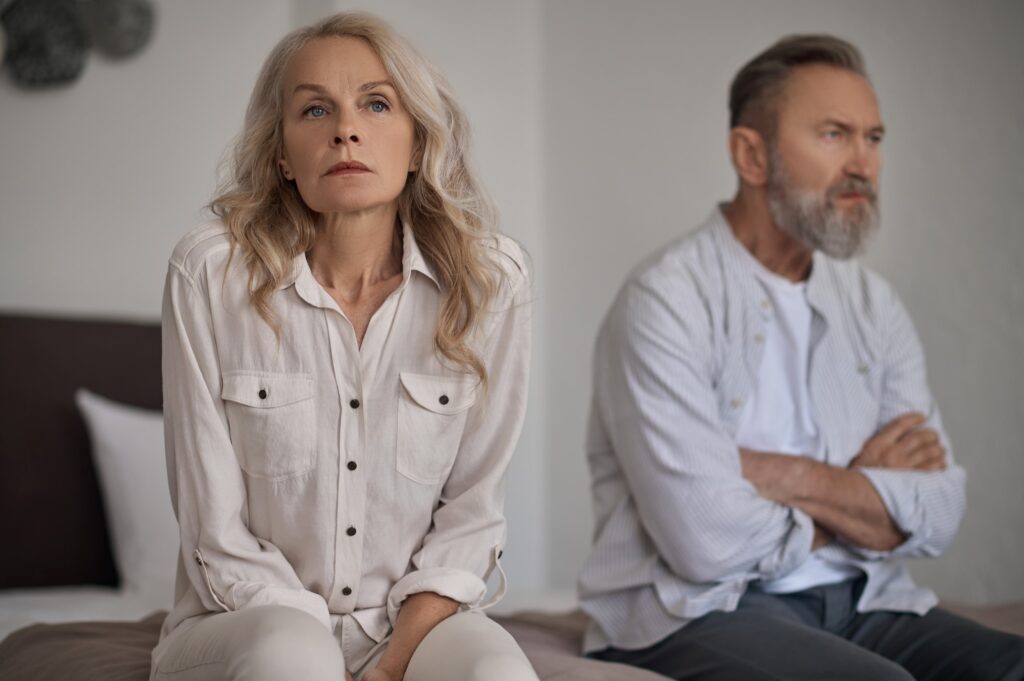“I love my partner but I am not in love with them” is one of the most common reasons people contact The Spark seeking relationship counselling.
I love you but I’m not in love with you

What does “I love you but I’m not in love with you”, mean? People say that the ‘spark’ has gone from their relationship; “we don’t talk”, “sex is non-existent”, “I just don’t fancy them anymore”. If you’re not talking and not having sex, you may feel empty, lost, and guilty. You may even have fantasies of a new perfect relationship with someone else. To complicate matters the “I’m not in love with you” is often followed by, “but I don’t want to hurt you”.
So, why might you feel like this? How can you tell if it’s possible to get that ‘spark’ back? Can you understand yourself and your partner and what has happened to that once great relationship? The good news is that the answer is yes.
What goes wrong?
There are many reasons couples reach the stage of one concluding: I love you but I’m not in love with you. But the heart of the matter is, they have lost that connection with their loved one.
Two people can start out with joint hopes and dreams, but normal life can take them in different directions. Something as simple as one of you returning to education or getting a promotion at work can mean that your interests and aspirations change.

When a couple’s values start to diverge, they can drift apart without even noticing. Consider this example: whilst you are working in fear of redundancy, your partner is caught up in football or clubbing. The lack of empathy and support, coupled with the cost of their interests, creates a dynamic which further increases the frustration and sense of growing distance.
Saying to a partner “I am not in love with you” is a body blow that may be difficult to survive, but communication is at the heart of relationships. Saying you don’t want to hurt your partner while secretly being annoyed or fantasising about someone else is dishonest and increases the emotional distance. So, while it seems hard to say the difficult stuff, unless the situation is addressed, the relationship is in trouble.
How can I change this?
There are things you can do to try to reconnect. First, think about your own feelings and behaviour:
- Are you overwhelmed by work or home commitments?
- Have you been so worried that you have not shared how you feel?
- Are other factors like financial worries or other family issues causing pressure?
- Has all this meant that you have withdrawn from the relationship?
Talk

It seems really simple but it is the best way to tackle the issue. Good communications are the beating heart of good relationships.
Tell your partner you are worried about your relationship and agree a time and space to talk about it. Jointly acknowledging that you are unhappy may be a shock but emphasise your commitment to improving the situation. This may be the wake-up call needed to save it.
Couples counselling
Often facilitating the process of talking requires professional support. Couples counselling or marriage counselling is a safe and neutral way to discuss issues and rekindle the ‘spark’. Society presents this incorrectly as a ‘last throw of the dice’ which discourages many couples from considering it. Yet 97% of our clients would recommend us to family and friends because of the benefits they have experienced in their relationships.
Counselling is a way to help your relationship get back on track. Learn more about relationship counselling or contact us.
The Spark also provides a range of free hints and tips for common relationship problems on our website. Have a look at our Top 10 Communication Tips or our Tips to Rekindle the Spark. Whether you want guidance on how to reconnect or need support navigating the difficult feelings The Spark is here to help.
The Spark Relationship Counselling
The Spark provides the following relationship counselling services and support from our regional centres across Scotland:
We have counselling locations across Scotland including Glasgow and Edinburgh. Find your local The Spark Counselling centre to enquire about counselling appointments.

